Do Rabbits Get Cold?

Rabbits may seem small and fragile, but did you know that they’re quite capable of surviving in frigid weather? They thrive in some of the world’s coldest places, such as Antarctica and Russia, which only means that they’re highly resistant to freezing conditions. But just because they can live in cold weather, do they actually get cold?
What Temperatures Can They Handle?
Rabbits are designed to survive significant drops in temperatures. Healthy adults usually do well and may even become more alert and active when the thermometer reading plunges to 40° F. With a well-insulated hutch, they can tolerate temperatures lower than that. However, 20° F can already be dangerous for your bun, and you’ll need to step in to ensure that he’s warm and comfy.
How Can You Tell If Your Rabbit Is Cold?
The numbers on the thermometer may not be enough to gauge if the temperature’s just right for your pet or if he’s already getting chilled. A quick way to check is to feel his ears. Are they too hot or too cold? Both are tell-tale signs of fever in rabbits and may indicate that the cold weather is too much for him.
A more reliable way of telling if your pet finds the weather too cold is to take his temperature. It should be between 101-103° F (or 38-39.5° C). Warm him up quickly if his thermometer reading is way under 100° F (37.8° C).

Changes in Your Bun’s Body as the Weather Turns Colder
Even if your bun no longer lives in the wild, his body still reacts to the approaching cold weather the way his undomesticated kin does. Here are some changes you may see in your pet when the temperature starts to drop.
Increased Appetite
Rabbits in the wild start to eat more when they sense the approach of winter. That’s because food gets harder to find during the cold months. Moreover, the increase in body fat helps protect rabbits from extreme cold.
Your fur baby may no longer need to forage for his food, but he’s still hard-wired to react to the onset of the cold season. So don’t be surprised if he gobbles up more than his usual share of hay, pellets, and fresh veggies as the weather turns frigid.
Denser Coat
Expect a fur storm when you feel the wind gets chillier. That’s because rabbits usually undergo a winter molt as the temperature drops. During this process, your bun sheds his summer coat and starts to grow a thicker, fluffier one in preparation for the winter months.
More Energy
Rabbits love cold weather. It usually invigorates them and increases their energy level. If you see your bun doing the zoomies and the binky more than usual, that may be his body’s reaction to the dropping temperature.
Buns may also dig and chew more during this period, so make sure you’ve rabbit-proofed your home.

What to Do so Your Rabbit Doesn’t Get Cold?
How you protect your pet from chilling temperatures will depend on where you keep him.
Indoors
Rabbits don’t have any problems handling temperatures that range between 60-70° F. Since most homes have an indoor temperature of around 68-75° F, your bun will likely be snug and warm if you keep him indoors.
If you like cooler temperatures, no worries. Your rabbit can take it. You can even turn off the heat during the day if you aim to save on your utilities. Even if it’s freezing outside, the temperature inside a well-insulated home usually remains within the range that buns can tolerate.
It’s a different story, however, if it gets extremely cold where you live. In such cases, you’ll need to turn the heat on, but you can keep it at a lower setting when you’re not home.
Outdoors
Of utmost importance is the location of your pet’s cage or hutch. It should be in a sheltered place (like a barn or shed) that’s protected from strong winds. There should also be a roof over the area and some protection on the sides.
Providing warmth for your rabbit’s outdoor housing is a must. Otherwise, your pet may suffer from the cold weather.
Make sure that the hutch is waterproof. You can cover it with a blanket followed by a layer of tarp for extra insulation and protection from the rain. But avoid sealing it completely, so excess moisture doesn’t build up and cause some health issues.
For hutches with wire floorings, it’s a great idea to install wooden flooring in one section. This not only prevents cold drafts from getting into your bun’s living space but also helps keep sore hocks at bay.
If you can place a heating pad inside the cage, so much the better. Also, put plenty of Timothy hay and wood shavings that your bun can burrow through. Just remember to change the bedding regularly.

Do Rabbits Need to Exercise During Winter?
Worries about your bun’s health may tempt you to skip your bun’s regular exercise routine when the temperature drops. This may not be a wise move as lack of exercise can lead to other problems, such as boredom or weight gain in your pet.
Rabbits still need opportunities to run around even during freezing weather. If you’re concerned about your fur baby’s safety, you can simply let your indoor rabbit out of his cage more often than usual. Running around the room or all over the house will provide the exercise he needs.
Short bursts of activity outdoor will likewise meet his exercise requirements and warm him up at the same time. If he gets wet while romping in the snow, make sure you dry him first before placing him back in his cage.
Hypothermia in Rabbits
When it gets too cold for rabbits, they may suffer from hypothermia. This is a condition where their body temperature drops after being exposed to cold climates. Getting wet during freezing weather can also have the same effect.
Signs of Hypothermia in Rabbits
Consider it an emergency if your bun exhibits the following symptoms:
- Pale gums and lips
- Shivering (which usually stops when your pet’s temperature gets too low)
- Loss of coordination
- Lack of energy
Try to raise your rabbit’s body temperature immediately and contact your vet, as hypothermia can be fatal.
Do rabbits get cold? Yes, they do. As such, the winter months can pose some risks for your pet. However, taking the time to ensure that your bun is snug and warm will help keep him safe even when it’s freezing outside.
We hope you enjoyed this post! If you did, will you give it a share or two 🙂 Thank you! ~from Every Bunny Welcome


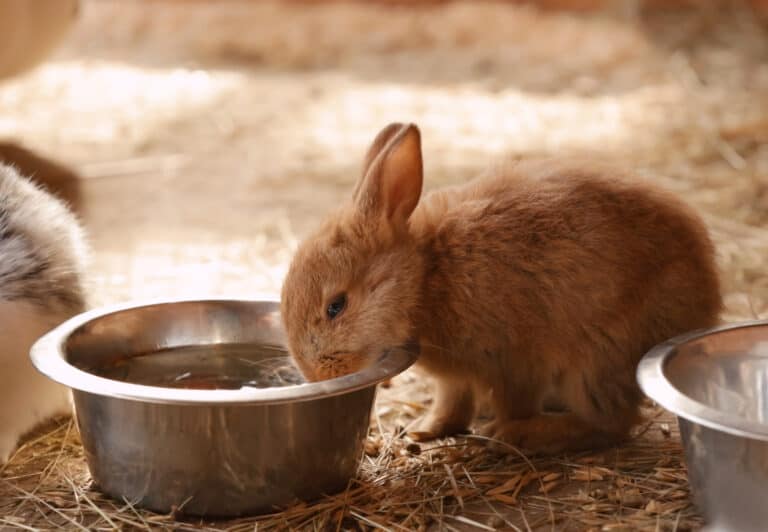
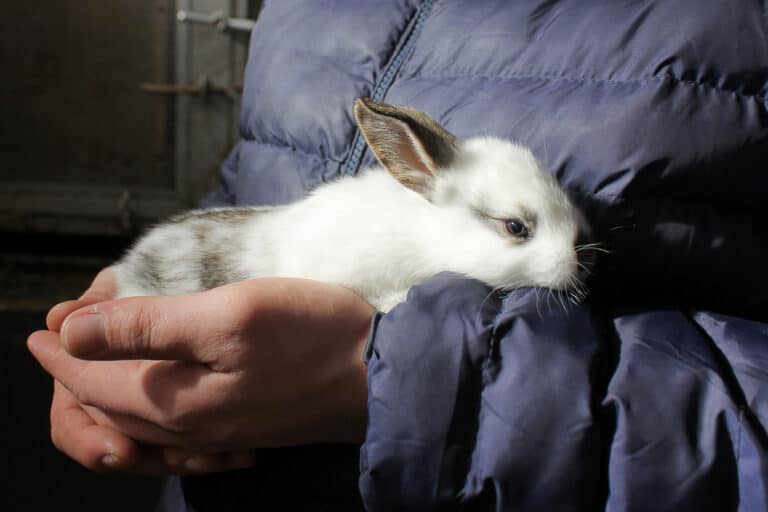
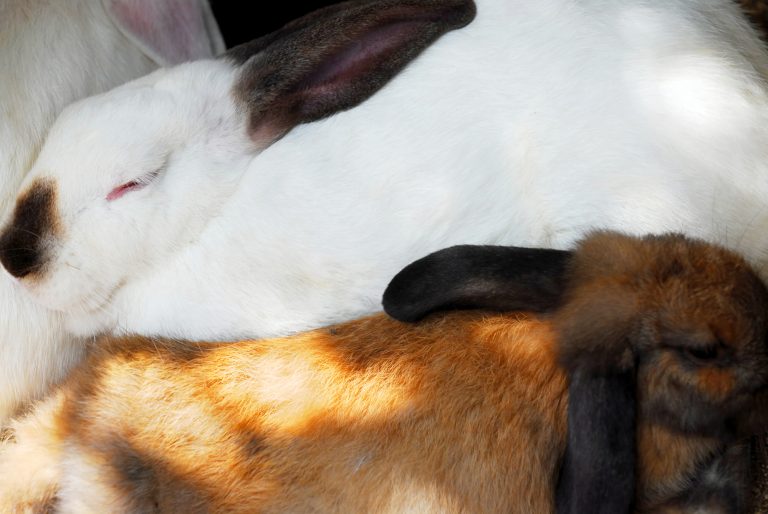
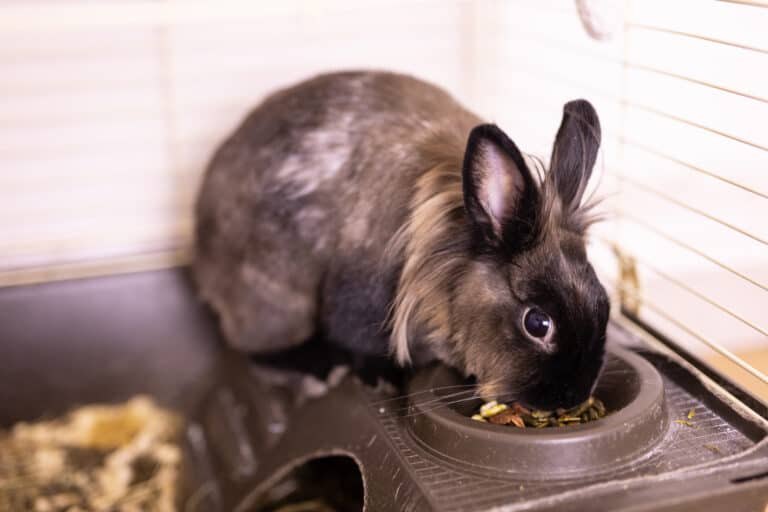
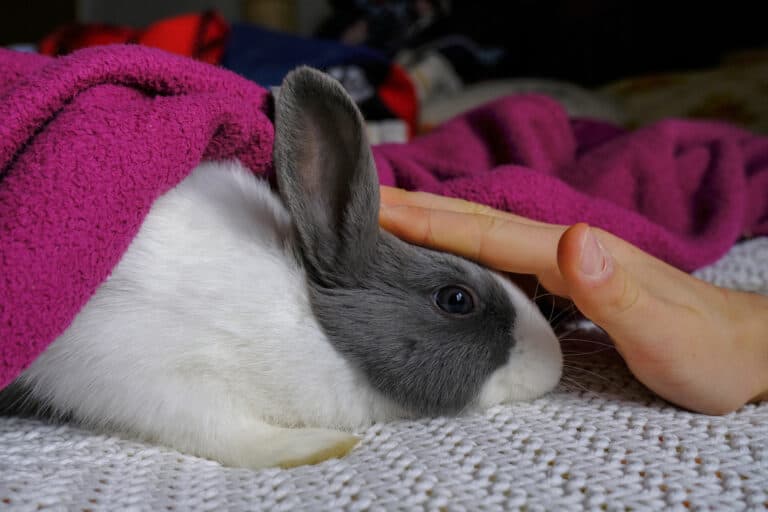
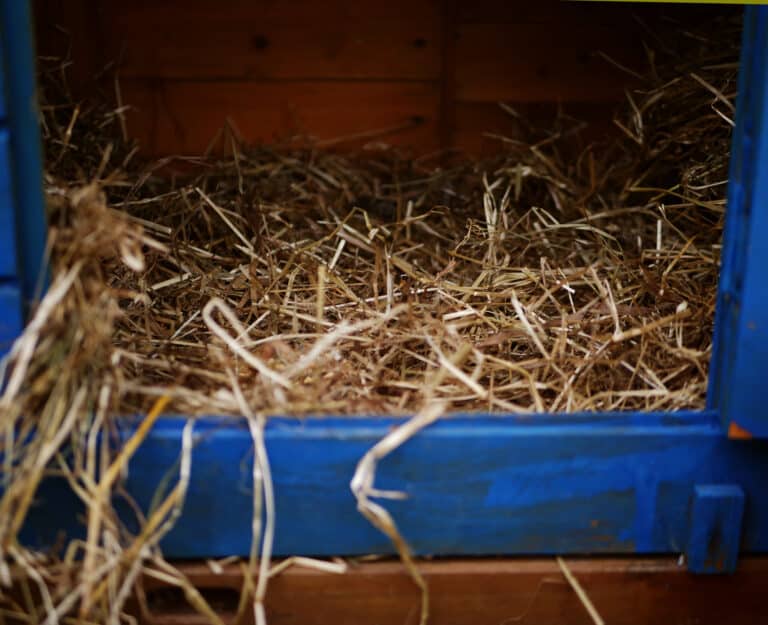
I love rabbits
Me too! 🙂
Christine